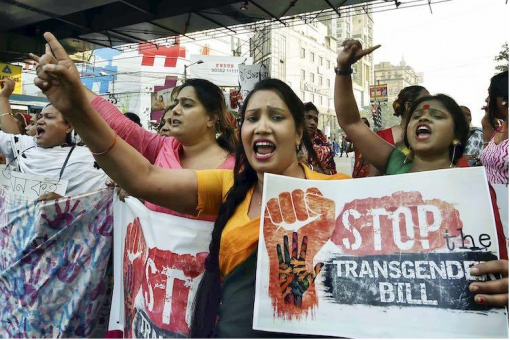
On October 20, 2019, a trans man, Shivansh Thakur, was reportedly physically assaulted in south Kolkata’s Bhawanipore. Thakur, who is the partner of a transgender activist Ranjita Sinha, was attacked by his landlady and her family along with hired goons. It has also been reported that the Bhawanipore police was present at the scene but did nothing to stop the attack.
On February 4, 2018, in Valiyathura of Thiruvananthapuram, Kerala, a mob was reported to have attacked a transwoman, accusing her of being a man in disguise who had come to abduct children. Her clothes were torn off and she was beaten black and blue. The police rushed to the spot and rescued her and rushed her to a hospital. However, the police refused to file a complaint against the attackers. The police officer is quoted to have told The News Minute, the transwoman was at “fault” because she was at the sea alone late in the evening; and there were rumours of child lifting in the area.
The above mentioned cases are only two among the many cases of violence against the transgender community. Most of the cases don’t come to light as they are seldom registered and reported. The transgender community continues to live with little to no protection from the state. This is the situation despite the Supreme Court of India, in a historic judgment in 2014, declared transgender people to be a third gender; and ruled that all the constitutionally guaranteed rights are equally applicable to transgender people.
Even after five long years following the judgment, a law that safeguard the interests of this vulnerable community is yet to be formed. However, the Transgender Persons (Protection of Rights) Bill 2019, which has been passed in the Lok Sabha and is now being discussed in the Rajya Sabha, will do more harm to the community and in no way safeguard their interests, as claimed by the members of the transgender community.
Decades of Discrimination and No Law
On November 20, 2019, the members of the Rajya Sabha demanded that the Transgender Persons (Protection of Rights) Bill 2019 be referred to a select committee. This version of the bill was passed by the Lok Sabha on August 5, 2019. As NewsClick had reported earlier, the bill dehumanises the community by proposing a screening committee which would grant an identity certificate to a trans person.
The bill, flouting the 2014 Supreme Court judgment, also made it mandatory for transgender persons to go through a Sex Reassignment Surgery or SRS and criminalises begging. However, after a great deal of opposition from the community two amendments were introduced to the nill.
The first amendment was concerned with the screening committee. Instead of a committee, the amendment stated, “The district magistrate shall issue to the applicant under Section 5 a certificate of identity as transgender person after following such procedure and in such form and manner, within such time, as may be prescribed, indicating the gender of such person as transgender.” The second amendment was with respect to the decriminalisation of begging. The amendment now specifies the following offences: “(i) compelling transgender persons to do forced or bonded labour (excluding compulsory government service for public purposes); (ii) denial of use of a public place; (iii) removal from household, village or other place of residence; and (iv) physical, sexual, verbal, emotional or economic abuse.”
The draft of the bill which is being currently discussed in the upper house has these two amendments. However, even with the amendments the bill is facing opposition from the community because, the bill still:
-
upholds the humiliating process of submitting an application to District Magistrate for a legal recognition of one’s transgender identity, and it makes getting an ID as male or female dependent on first registering as transgender, and then supplying proof of surgery.
-
postulates that sexual violence against trans persons will face punishment from 6 months to 2 years, in comparison with the 7 years of imprisonment for sexual violence against women.
-
requires transgender people, to reside with their birth family – even though birth families are often the first site of violence against these individuals.




